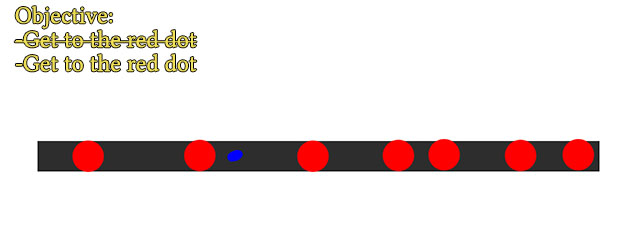
To get more people interested, games now use focus testing, insert hints into hints, show the way even in the most linear levels, set very short term objectives to the player. Yet, with all this, i feel, games not only fail to get more people interested, but make some people, who already love games, loose interest. I mean, sure, they do get easier to understand, more appealing to people, get more game elements and mechanics. Maybe they sell better (while still somehow failing with 3 million sales in the opening month). But i said interested. For a very long time I couldn’t understand quite why this happens. But it seems, I’ve got it now. As always in my posts, I’m speaking from my experience and my knowledge, telling my own opinions, but usually I find some support beforehand or write about some topic, I’ve seen discussed before. This time, what I write might be true only to me and some of my friends and I might be completely wrong in my assumptions. But let’s see, if whomever reads this can relate.
Once, we didn’t have GPS or other kinds of clear directions in open world games. To play GTA III or Mafia: The City of Lost Haven properly you’d have to remember the roads, the layout of the city. Yet even with those two games there was a difference – I remember Liberty City of GTA III much better, than that of Lost Haven. Later i realised, that one of the biggest reasons for that was, that Mafia had a very useful and convenient map. It was a semi-translucent overlay map, not entirely unlike automaps in Doom and other older FPS games. And it was faster and easier to consult it and be on your way in Mafia, than using the in-game map of GTA III, instead of trying to remember the roads. Of course, the more linear structure of Mafia was also part of the reason, but the fact that i didn’t need to remember the roads there, was reason enough for me to not care about that. And today, when GPS shows me the way to your objective, there’s much less incentive to find shortcuts, I just follow the line.
It’s kind of a rule for shooter games lately to have more linear levels and set short term objectives to the player. The usual “follow, get there, open the door, take the RPG, shot the RPG, drop the RPG, go there” rollercoaster ride. And it’s not a bad thing on its own – linear games can be entertaining and fun, while hints can help the game help the player keep the “exciting pace”. But in both single-player and multiplayer, this amount of helpful information can lead to interesting results. We stop looking at the game. We look at indicators, at the mini-map, at the colors and visibility of names above the moving object on screen. We don’t look at the game, don’t think about things we do, once we realise how the game works (which takes a very small amount of time do to hint systems and simplified mechanics).
If you played different genre games for some time, you start noticing patterns, you start predicting things. If you see a big room or tons of weapons in a shooter, you know a boss or simply a big fight is coming. If you see carefully placed objects to take cover in the room in a third person shooter, you know there’s going to be shooting there. If you find a savepoint in a classic jRPG, especially if it’s been quite some time in a dungeon or some location, you know you should save, because the boss is coming up. If you’re playing old school survival horror, you know you’re safe in the room with a save point and if you enter a new room, monsters won’t follow you there. You see those patterns and the most fun and memorable moments in gaming tend to happen, when the developers don’t follow them, when they surprise you. When your predictions fail. Because we like pleasant surprises.
Most of the modern games combine the elements from the above 3 paragraphs. And when those elements are in the basis of the game or huge portions of the game, I simply zone out. Gameplay continues on autopilot, in a detached state, i become an indifferent observer of my own playing. Like going to the toilet at home, or going to your studies or your work for several years. It just happens. And I simply forget huge portions of gameplay, while my hands continue doing the familiar actions on a gamepad or kb+mouse, while I’m thinking about something else. Something interesting. Or nothing at all.
And you can blow up eiffel towers, can kill “my” wives and friends, can do all the crazy plot twists or through cool visuals and effects on screen. But I won’t care. Because I won’t be in your game at that moment, my eyes and hands will be playing it, but my mind will be someplace else. And i can see more and more reasons to agree with people who say, that while technically more and more people are becoming gamers, people who are truly excited for videogames are getting more of a rarity. Because, how can be excited about something mindless and forgettable?